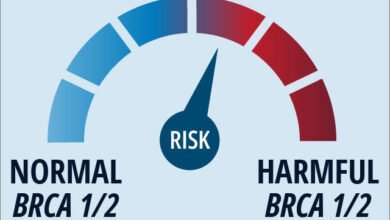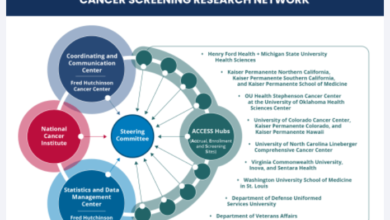Immunotherapy Combination That Targets TIGIT Receptor Shows Promise in Non-Small Cell Lung Cancer: The ASCO Plenary Series

The pace of progress in cancer research keeps getting faster and faster. However, the results of this research can take time to reach the medical community. The ASCO Plenary Series is a program developed by the American Society of Clinical Oncology (ASCO) to help speed the delivery of high-impact cancer research. In this series, cancer care providers gather online to learn about new, carefully selected research and discuss the study results with their colleagues.
The December 2022 session in the ASCO Plenary Series features a study in advanced lung cancer.
- Immunotherapy combination that targets TIGIT receptor shows promise in treating advanced non-small cell lung cancer
Follow the discussion about research from the ASCO Plenary Series by using the #ASCOPlenarySeries hashtag on Twitter.
Immunotherapy combination that targets TIGIT receptor shows promise in treating advanced non-small cell lung cancer
Who does this study affect? People with stage IV non-small cell lung cancer (NSCLC) that expresses PD-L1.
What did this study find? Data from the phase 2 ARC-7 study showed that an immunotherapy combination worked twice as long as using a single immunotherapy drug in the treatment of stage IV NSCLC with a high level of PD-L1 expression.
Immunotherapy is a fast-growing field in the treatment of advanced NSCLC, but the existing treatments tend not to work for a long time for many patients. Immunotherapy is a treatment that uses the body’s natural defenses to fight cancer by improving the immune system’s ability to find and attack cancer cells. In this study, the researchers used combinations of experimental immunotherapy drugs to see if they stopped the tumors from growing. Domvanalimab is a monoclonal antibody that targets the TIGIT receptor. Previous studies have had difficulty proving that the TIGIT receptor is an effective target for the treatment of lung cancer. Zimberelimab is an immune checkpoint inhibitor that targets PD-1. Etrumadenant is an immunomodulatory drug that targets adenosine receptors.
This study included 150 participants. At the time when the data were analyzed, the researchers had results from 133 patients. The participants had been evenly distributed among 3 groups:
-
Arm Z. These 44 participants received zimberelimab alone. If the cancer continued to progress, patients were allowed to switch to Arm EDZ.
-
Arm DZ. These 44 participants received domvanalimab plus zimberelimab.
-
Arm EDZ. These 45 participants received etrumadenant plus domvanalimab and zimberelimab.
The participants’ health was tracked for about 1 year. In Arm Z, the cancer responded to treatment in 27% of the patients. This is called the response rate. The response rate was higher in the other 2 treatment arms. For those in Arm DZ, the cancer responded to treatment in 41% of patients. In Arm EDZ, the response rate was 40%. The immunotherapy combinations also led to longer progression-free survival, which is the amount of time that the cancer is slowed or stopped. For those in Arm Z, the cancer was stopped for about 5.4 months. For those in Arms DZ and EDZ, the cancer was stopped for 12 months and nearly 11 months, respectively. At 6 months, 43% of participants in Arm Z still had no signs of disease progression. For those in Arms DZ and EDZ at 6 months, no signs of disease progression were seen in 65% and 63% of participants, respectively. Serious side effects occurred in about half of all participants in all treatment arms.
What does this mean for patients? This is an early study, but it shows that advanced lung cancer responds to combinations using domvanalimab and that the cancer was stopped for twice as long as compared with zimberelimab used alone. Further phase 3 studies are in progress to study whether this treatment is more effective than other standard treatments for NSCLC. This study may also help show that TIGIT is an effective target for the treatment of NSCLC.
Read this abstract and authors’ disclosures on ASCO.org.
“The current standard-of-care for many patients with stage IV non-small cell lung cancer is a single immunotherapy drug but only a fraction of patients will truly benefit over the long term. Identifying novel combination treatments is critical to improving patient outcomes. We are particularly encouraged by the number of patients benefiting at 6 months as evidenced by tumors being stable or shrinking. It should be noted that this is an interim analysis and the data will continue to mature with longer follow up.”
— Melissa L. Johnson, MD
Sarah Cannon Research Institute at Tennessee Oncology
Nashville, Tennessee
Source link
#Immunotherapy #Combination #Targets #TIGIT #Receptor #Shows #Promise #NonSmall #Cell #Lung #Cancer #ASCO #Plenary #Series



